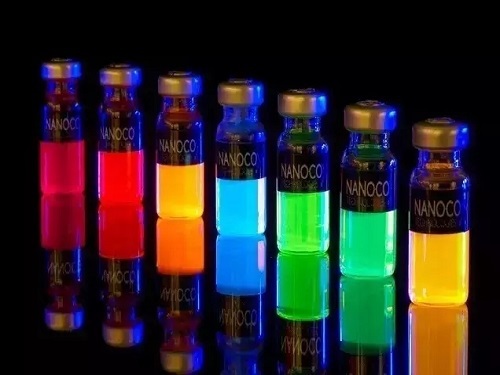
Samsung Electronics is planning a mid- to long-term road map for next-generation televisions. According to South Korean media reports, Samsung will skip OLED TVs and go directly to QLEDs. Samsung’s current main product is Quantum-dot TV. Its strategy is to continue to develop Quantum-dot TV while preparing for the commercial use of QLED technology. OLED has some defects, such as longevity, aging, and manufacturing costs, so Samsung decided to skip OLED directly.
Samsung Electronics and industry sources revealed on the 22nd that the Samsung VD (Video Display) Business Unit is adjusting the road map for next-generation TVs and it will be finalized next month. Samsung will then share the roadmap internally.
Since 2006, TVs sold by the Samsung TV Group have been the world's first. So far, Samsung has led the market through LED, 3D, smart, quantum dot concept TVs. This year, Samsung has not yet demonstrated any concept TV. It continues to use SUHD TV as it did last year. LG Electronics is the second largest TV maker in the world. It is advancing the development of OLED TVs. The industry wants to know how Samsung Electronics responds.
Last year, Samsung Group conducted a management evaluation of the Samsung Electronics VD Business Unit, which has already focused on QLEDs. They hope that QLED can help the company maintain its leadership in the next-generation TV market. Samsung's strategy is focused on: VD Business Unit will skip OLED TVs after QD TV and directly enter QLED TV. Many years ago, Samsung developed OLED TVs internally and evaluated them. Ultimately, Samsung believes that some problems are difficult to solve, such as the service life, aging, and other problems caused by organic materials. In fact, the high cost of manufacturing OLED units is the main weakness.
“Although we have been developing OLED technology and we are keeping an eye on this technology, there is still a problem with the longevity and high production cost of the technology used in large-scale products because it uses organic materials,†said a senior executive. The Samsung VD Business Unit is developing a roadmap for the next generation of TVs.†The executive also added that after Quantum-dot TV, Samsung decided to go directly to QLED TVs because the technology is rapidly developing.
In the next two to three years, Samsung’s focus will still be on SUHD TVs, which use quantum dot screens, and will continue to improve the level of QLED technology to meet commercial requirements. According to estimates, the new QLED TV will be launched in 2019.
QLEDs use quantum dots of 2 to 10 nanometers. Like OLEDs, they also emit light without the need for a backlight component. Quantum dots have only one percent of the thickness of the hair, and they vary in size and color. Because of the use of inorganic materials, QLEDs have better durability than OLEDs, and OLEDs use organic materials. QLEDs have lower cost, better clarity and light stability. In addition, since the color performance of a single pixel of the QLED is better, it has an advantage in performing HDR (High Dynamic Range) technology. At present, HDR has become a competition focus of TV quality.
When the color TV business yelled for many years that OLED TVs have not been scaled up, quantum dot TVs have emerged.
Although it was popularly popularized by domestic manufacturers earlier, OLED TVs have not yet formed a large-scale sales wave in China because of the problems of high prices, low yields, and color display. Even Skyworth did not use OLED as its main product, but instead included it in its first camp of GLED TV products. In addition to its emphasis on thinness and lightness, it also strengthened domestic smart TV chips and smart operating systems with independent intellectual property rights.
At the same time, Samsung's defensive presence in the OLED TV camp turned into a QD camp.
According to Chen Guanglang, chief technology officer of TCL Multimedia, compared to OLED, quantum dot TV has a wider color coverage, can achieve 110% NTSC color gamut, more accurate color control, and more pure red, green and blue.
Judging from the current situation, the QD TV camp will soon dominate the OLED camp with absolute advantages. Some analysts believe that there are currently fewer suppliers of quantum dot materials globally, and after QD TV has been mass-produced, there is uncertainty about the continued availability of materials.
Loud Trolley Speakers,Best Trolley Speaker,Portable Trolley Speaker,Best Portable Bluetooth Speaker
Newmax Electronics Co.,LTD , https://www.fspeaker.com